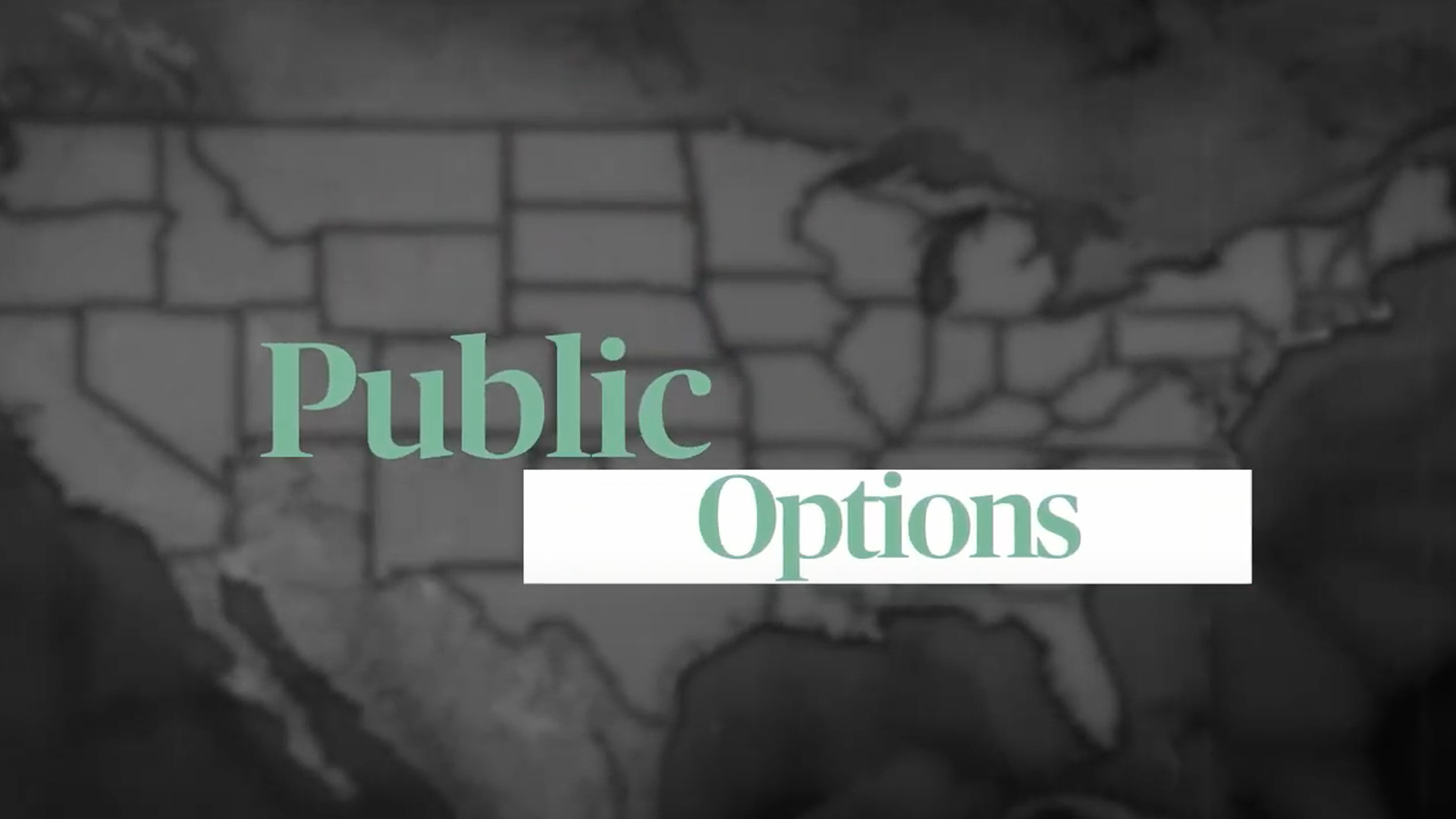Update
Public Options Bring the Public Back Into Governance
09. 14. 2023
Our Public Options for America Fund will invest in those who are pushing to make public options a reality.

In an economy that works for everyone, families can access vital necessities like food, medicine, energy, internet service, and healthcare. Unfortunately, that isn’t the reality for millions of families today. Corporate consolidation of grocery stores means families can’t access healthy food; unregulated pharma pricing means seniors can’t afford insulin; and utility companies’ singular focus on profit means that thousands of communities lack reliable energy and broadband internet access.
Public options can help address this. They are a powerful tool communities can use to fight corporate consolidation and reclaim economic power, and they have been around for a long time:
As the video above explains, public options are options in the marketplace provided or procured by the government, available to all, that exist alongside private options to restore economic choice and power to families. They make communities partners in crafting markets that are more competitive and that work for real people.
And public options are more viable now than ever, with new federal legislation making trillions of dollars available to put into the economy. Funds from the Inflation Reduction Act, Infrastructure Investment and Jobs Act, and Greenhouse Gas Reduction Act, can be channeled to communities today.
There is no one set path to bringing public options to fruition, and there are so many innovative organizing and leadership models to build on and scale. Communities can come together and demand a public option through a ballot initiative or referendum, as community members in Maine are organizing to create a consumer-owned electric grid to free them from monopoly control over energy access. State governors can secure a public option through executive action, as Governor Newsom in California did through CalRx, a program to provide low-cost insulin to Californians, protecting patients’ access to this life-saving medicine. Legislatures can bolster public options, like the Illinois state legislature allocating $20 million to help open municipally-owned grocery stores for communities living in food deserts. Tribal nations can create public options, like the Yurok tribal nation in California building and managing their own broadband network to bring internet access to their community, when private internet service providers failed to act because they lacked the business case. And communities can leverage the Inflation Reduction Act and other federal legislation to invest in public options that build a green economy, such as New York City Comptroller Brad Lander’s proposal to create a public source for rooftop solar panels.
We have a unique opportunity to supercharge public options, and make them available to even more people in more sectors of the economy. These bold, creative solutions can be embraced by federal, state, and local governments alike, as tools to restore equity and fairness to the economy.
Building on Economic Security Project’s successful Antimonopoly Fund, our Public Options for America Fund will invest in civic groups, advocates, researchers, and communities who are pushing to make public options a reality. Through the fund and our complementary strategies, we will provide tools like feasibility research and technical assistance to make it easier for legislators to advance public options; we will invest in groups deploying public investment dollars available through new federal legislation; and we will popularize public options through strategic communications and storytelling.
These investments are made possible by our leading partners: the Wallace Global Fund, Omidyar Network, Square One Foundation, Ford Foundation, and Marguerite Casey Foundation, all of whom see public options as a critical tool for restoring fairness to our economy.
Now is a pivotal moment to rally behind this affirmative vision to build an economy that truly works for people, not just corporations.
Learn more about our new partnership with Chicago Mayor Brandon Johnson
Together, we're building a path to open a municipally owned grocery store.
Visit link (opens in new tab): Together, we're building a path to open a municipally owned grocery store.